
We’re super excited to be a part of the blog tour for Emily Henry’s The Love That Split The World! We’ve got an amazing guest post for you today from Emily, but first a little about the book!
 The Love That Split the World by Emily Henry
The Love That Split the World by Emily Henry (Twitter, Goodreads)Also by this author: A Million Junes, Beach Read, People We Meet on Vacation
Published by Penguin on January 26th 2016
Genres: Emotions & Feelings, Fantasy & Magic, Love & Romance, Social Issues, Young Adult
Pages: 400

Emily Henry’s stunning debut novel is Friday Night Lights meets The Time Traveler’s Wife, and perfectly captures those bittersweet months after high school, when we dream not only of the future, but of all the roads and paths we’ve left untaken. Natalie’s last summer in her small Kentucky hometown is off to a magical start…until she starts seeing the “wrong things.” They’re just momentary glimpses at first—her front door is red instead of its usual green, there’s a pre-school where the garden store should be. But then her whole town disappears for hours, fading away into rolling hills and grazing buffalo, and Nat knows something isn’t right. That’s when she gets a visit from the kind but mysterious apparition she calls “Grandmother,” who tells her: “You have three months to save him.” The next night, under the stadium lights of the high school football field, she meets a beautiful boy named Beau, and it’s as if time just stops and nothing exists. Nothing, except Natalie and Beau.From the Hardcover edition.
Please describe your 1-2 biggest inspirations as a writer and how this contributed to the book.
I remember being eight or nine years old and discovering the Animorphs series, by Katherine Applegate. I remember falling so deeply in love with characters that I’d stay up all night reading by flashlight, that I’d think about these imaginary people throughout my days and relate the (mostly very mundane) things that happened to me to the things they were experiencing. I remember fearing for them and crying for them. At one point, I was even on a call-list at the local bookstore so that as soon as a new installment hit the shelves, my parents could take me up to get it.
It wasn’t the first series I’d loved—my parents had read to us almost every night when we were small and because of that I’d “read” the Black Stallion Books, The Lord of the Rings, the Chronicles of Narnia—but it was, as far as I can remember, the first one that felt so real to me it was like it belonged to me. I didn’t long for the world it described; I simply lived it. Even at that age, I knew I wanted to be a writer. I couldn’t imagine anything more incredible than being able to create something that meaningful for other people. Plus, reading that series was the first time I experienced the impulse to write. Both fan fiction and original stories. Reading something I love, ever since, then always makes me itch to write so badly that sometimes it’s hard to even finish the book I’m reading! It just super-charges me. Connecting deeply with someone else’s story always makes me want to share my own, and that’s at the core of why I write: to connect people, to help people feel less alone or more understood, like my favorites have done for me!
The second biggest “motivation” for my writing, I think, is the way that fiction allows you to see your own world in new and surprising ways. I can actually trace this directly back to reading The Giver in fourth grade. I don’t want to give away any spoilers, for the poor few who haven’t read it, but at the time, “dystopian” didn’t seem like as much of a thing, and reading about a world that mirrors our own in so many ways yet draws heightened attention to a few aspects was such a mind-altering experience for me. I legitimately remember thinking (in much less clear terms than this, “I didn’t know books could do this.” I knew they could sweep you up. I knew they could make you care about people who didn’t exist, and long for places you couldn’t go, and know yourself better, but I didn’t know they could completely change your perspective on the world. Or that they could cause you to question what was True. There’s a moment when the main character begins to see his world differently (in a literal and physical sense), but as a reader, you don’t understand what’s happening—what exactly is changing for the character—and once it’s explained to you, you realize that all your assumptions about the way this person experiences the world were wrong. You assumed that he saw things the same way you see them, but his entire frame of reference is different than yours. His world is different than yours. This was such an earth-shaking lesson in empathy for me, and it’s played an enormous role in how I write.
I want to write things that make readers’ worlds bigger, that challenge you to open your mind a bit wider, or present something you hadn’t considered before. And I want to write things that foster empathetic thinking—that push a person to feel what someone else feels.
Of course there are other books I love wholeheartedly (Harry Potter, A Wrinkle in Time, I’m looking at you!) and movies that have cracked me open (Beasts of the Southern Wild was a life-changing watch for me), but these two stories had such a deep and lasting impact on who I am as a person today and on the writer I’ve become. They played an absolutely essential role in writing The Love That Split the World, where my ultimate goals were to challenge the way we think about love and time and to create characters readers could love and believe loved them back.


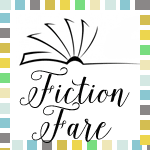

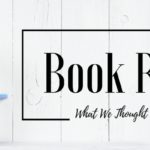
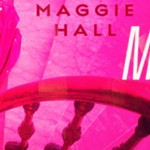
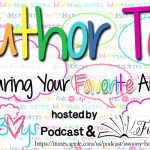


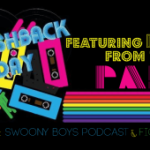
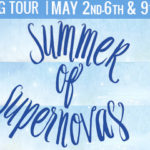

Recent Comments